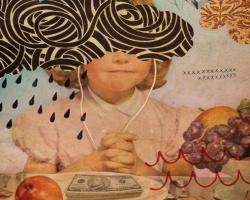In 1951, Time magazine set out to paint a portrait of the nation’s youth, those born into the Great Depression. It doomed them as the Silent Generation, and a generally drab lot: cautious and resigned, uninterested in striking out in new directions or shaping the great issues of the day — the outwardly efficient types whose inner agonies the novel Revolutionary Road would dissect a decade later.
“Youth’s ambitions have shrunk,” the magazine declared. “Few youngsters today want to mine diamonds in South Africa, ranch in Paraguay, climb Mount Everest, find a cure for cancer, sail around the world or build an industrial empire. Some would like to own a small, independent business, but most want a good job with a big firm, and with it, a kind of suburban idyll.” The young soldier “lacks flame,” students were “docile notetakers.” And the young writer’s flair “sometimes turns out to be nothing more than a byproduct of his neuroses.” (This even before Philip Roth, born 1933, had published a novel.)
“The best thing that can be said for American youth, in or out of uniform, is that it has learned that it must try to make the best of a bad and difficult job, whether that job is life, war, or both,” Time concluded. “The generation which has been called the oldest young generation in the world has achieved a certain maturity.”
Today we are in a recession the depth and duration of which are unknown; Friday’s job loss figures were just the latest suggestion that it could well be prolonged and profound rather than shorter and shallower.
So what of the youth shaped by what some are already calling the Great Recession? Will a publication looking back from 2030 damn them with such faint praise? Will they marry younger, be satisfied with stable but less exciting jobs? Will their children mock them for reusing tea bags and counting pennies as if this paycheck were the last? At the very least, they will reckon with tremendous instability, just as their Depression forebears did.
“The ’30s challenged the whole idea of the American dream, the idea of open economic possibilities,” said Morris Dickstein, an English professor at the Graduate Center of the City University of New York, whose cultural history of the Depression will be published in September. “The version you get of that today is the loss of confidence on the part of both parent and children that life in the next generation will inevitably be better.”
How today’s young will be affected 10, 20 or 40 years on will depend on many things — the children of the Depression were shaped as much by the war that followed. The recession generation will include those born into it, at the youngest end, and those emerging out of college and high school into a jobless marketplace, at the oldest. If history is any guide, what will matter most is where they are on the continuum.
“There is no simple cause-and-effect relationship in how economic adversity pushed a generation into any one kind of behavior,” said Neil Howe, who with his longtime co-author, William Strauss, is credited with naming today’s 20-somethings the millennials. “The impact depends on the context and the mood of the time and how children understand the spirit of the times.”
In an afterword for the 25th anniversary edition of his 1974 book, “Children of the Great Depression,” Glen H. Elder Jr., a sociologist at the University of North Carolina, noted differences even between two cohorts of children born relatively close together: one in Oakland, Calif., in the early 1920s (comparable to today’s 9-year-olds) and those in nearby Berkeley at the other end of that decade (today’s toddlers).
In long-term studies, the younger group suffered the bigger psychic scars. For them, the worst disruption of the Depression coincided with the critical years of development when they most needed their parents. With incomes dropping, parents fought more and drank more, leaving children bewildered and often alone. Years later, the group looked back on their childhood as a period of unpredictability, and their high school years as a time they lacked direction or a sense of confidence. As one small-business man put it, “my entire adolescence was a period of painful and frustrating disorientation.”
The older children were better able to understand the hardships, and to get outside the household to help the family earn. They went off to World War II and benefited from the structure of the military, then returned to the booming economy and the G.I. Bill. Ultimately, Professor Elder said in an interview, “they came out with an ability to know how to survive and make do and solve problems.”
Today, the most immediately affected may be the oldest members of Generation Recession — those in high school and college.
Research shows that the wages of those graduating into the recession of the 1980s were held back for more than a decade. And weak stock markets tend to make the young more risk averse about investing into the next decade.




